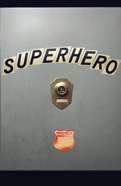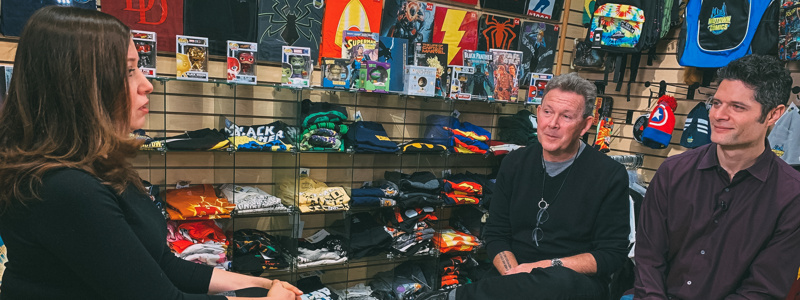
(Photo by Lindsey Sullivan for Broadway.com)
Superhero's Tom Kitt, John Logan & Jason Moore on Finding Humanity in the World of Comic Books

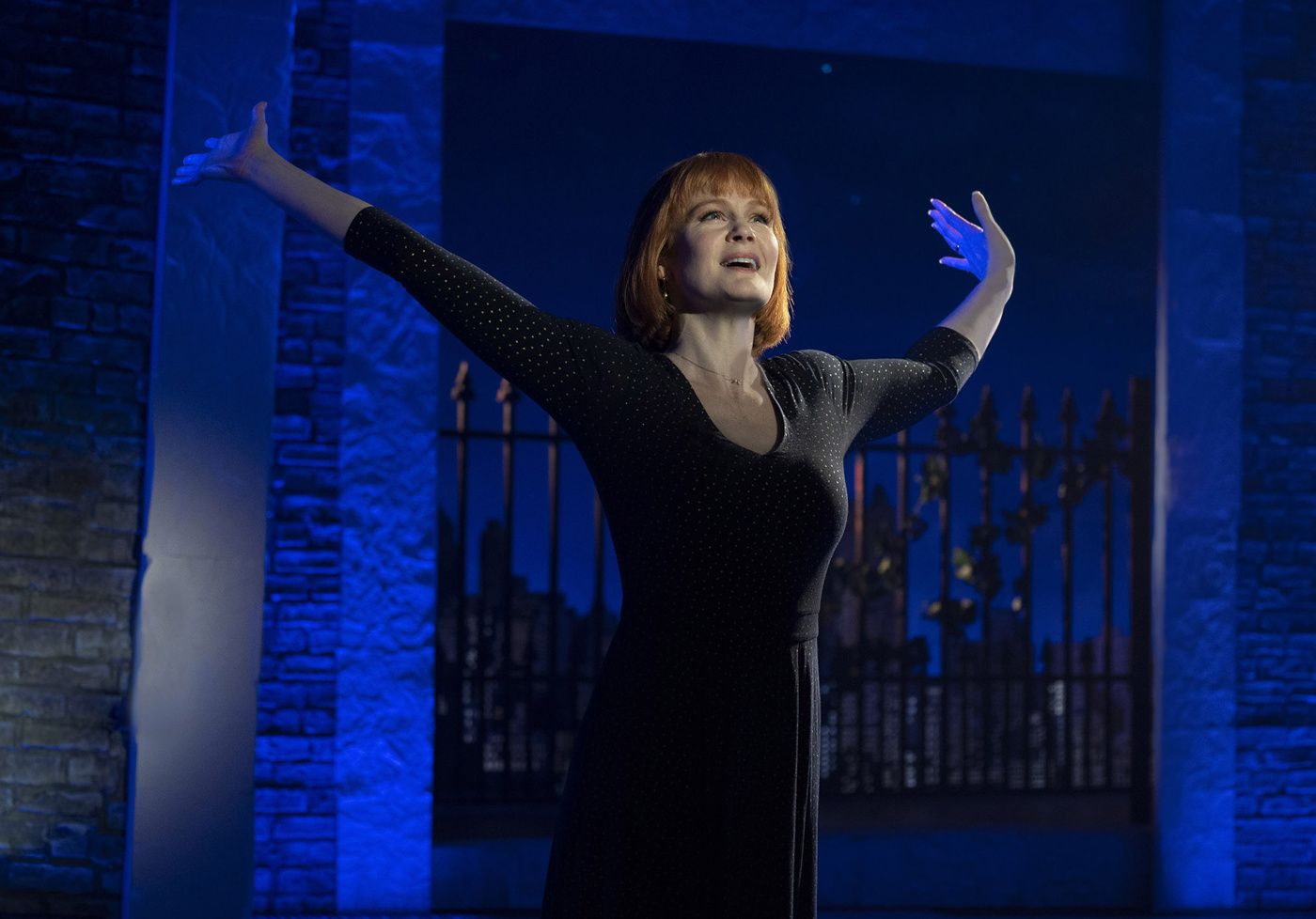
(Photo: Joan Marcus)
Composer Tom Kitt and scribe John Logan have many accolades between them, including a Pulitzer Prize, Tony Awards, an Emmy, three Oscar nominations and more, but it wasn’t just mutual admiration that drew them together: it was nerdy fandom. The talented duo collaborated for the first time on the new musical Superhero, and it was their shared love of comic books that bonded them from the start. Broadway.com sat down with Kitt, Logan and Superhero director Jason Moore to talk about secret identities, hero myths and the joys of creating this heart-wrenching new show.
Kitt, known for the Pulitzer-winning musical Next to Normal as well as If/Then, High Fidelity and more, says he has always wanted to write something that sprung from his obsession with comic books: “I just love this world, and I think back to when I was four years old and my parents took me to see Superman in the movie theater on Long Island for the first time. And it was just a wave of emotion, he says. “I just thought I would like to bring those qualities to a musical; I think you could have both something that’s fantastical but also deeply human.”
The musical centers on a grieving mother (Kate Baldwin) and son (newcomer Kyle McArthur) and their mysterious new neighbor (Bryce Pinkham). “The character of the son is obsessed with comics and superheroes the way John and I both are,” Kitt explains. “He draws the worlds he envisions. Then he starts to see characteristics in this third character [the neighbor] who he thinks may or may not be the characteristics of a superhero.”
Logan, known for his Tony-winning play Red and numerous screenplays (Gladiator, The Aviator, Hugo, Skyfall), was immediately smitten with Kitt’s idea. “I’m just besotted with musicals; I grew up with them,” Logan says. “In my house, the most sacred words were ‘original cast album.’ Tom started talking about this idea from a very human perspective as a father,” he continues. “How do you teach your children about fear? How do you let them get hurt and survive? How do you take the myth of the superhero and help people with it? And I did what your agent tells you never to do: I said, Yes! instantly in the room, I leapt across the table.”
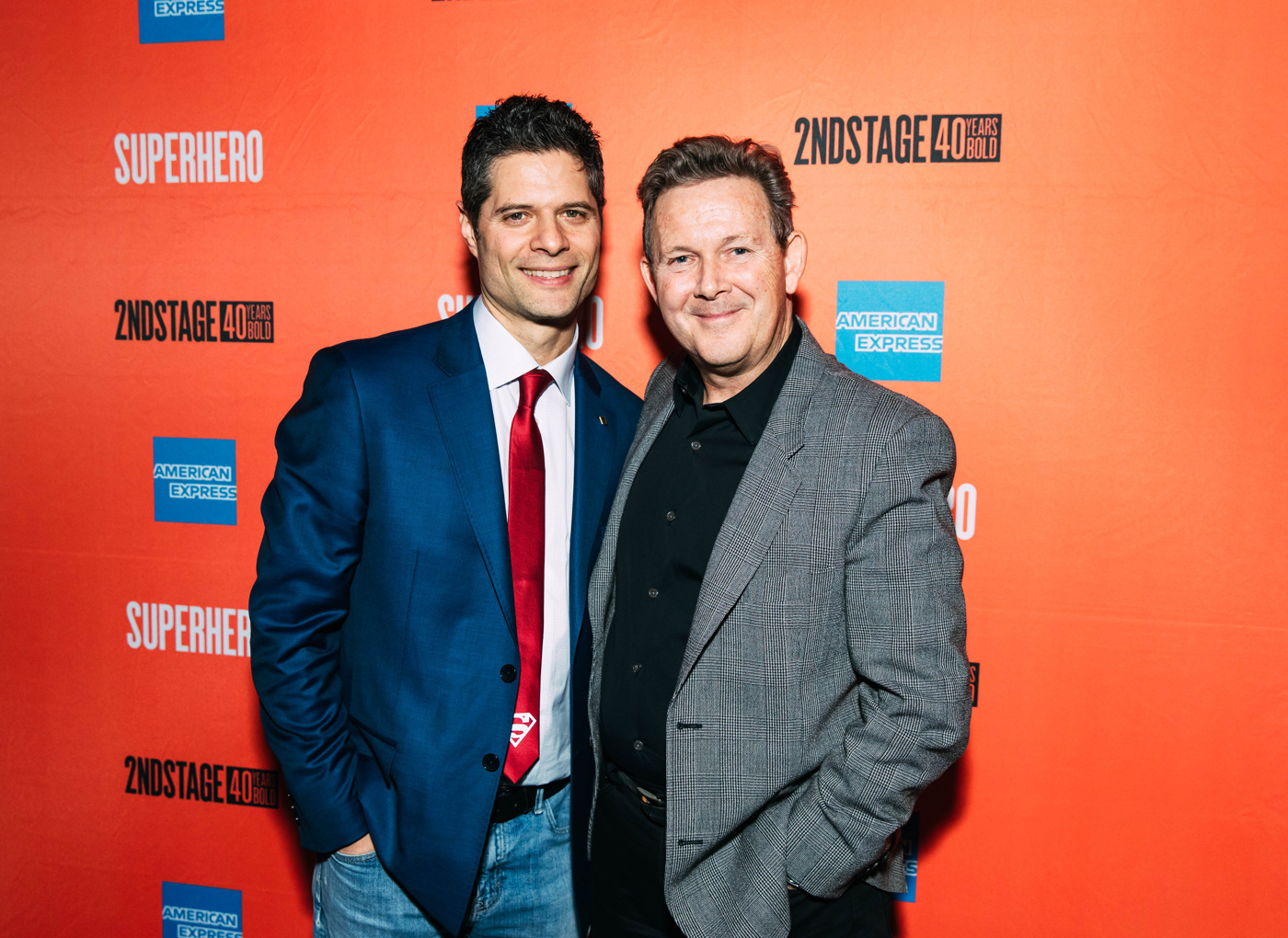
(Photo by Emilio Madrid-Kuser for Broadway.com)
The pair set to work finding a way to make comic books the basis for a story that’s more human than hero. “The first thing we did process-wise is we just talk for a really long time,” Logan says. “We talked about superheroes and particularly about the secret identity, and how Clark Kent is to us as interesting—if not more interesting—than Superman. What would it really be like if you had a secret identity? You had to be anonymous. You had some kind of job. And how sad and lonely that would be in a way.”
In addition to focusing on the hero aspect, the collaborators knew they wanted the piece to stay grounded in real emotions. “I wanted to talk about my experiences as a father, what my kids teach me, what I hope I’m teaching them, what my wife teaches me every day and also bring to this kind of story how much a family the unit of two parents is,” Kitt explains. “And if one of those parents were to go away, what that would mean. To me, the single parent is a superhero. It’s remarkable and extraordinary.”
As Logan and Kitt progressed with the musical, they brought Tony-nominated director Jason Moore into the mix. He shared many sensibilities with the composer and writer, except for a glaring one: “I am a nerd,” Moore admits, “but I am not a comic book nerd. So, when I first met with them I sort of had to go, ‘Hey guys, so I don’t know as much about comics as you do, but I’ll be the eyes of the audience.’”
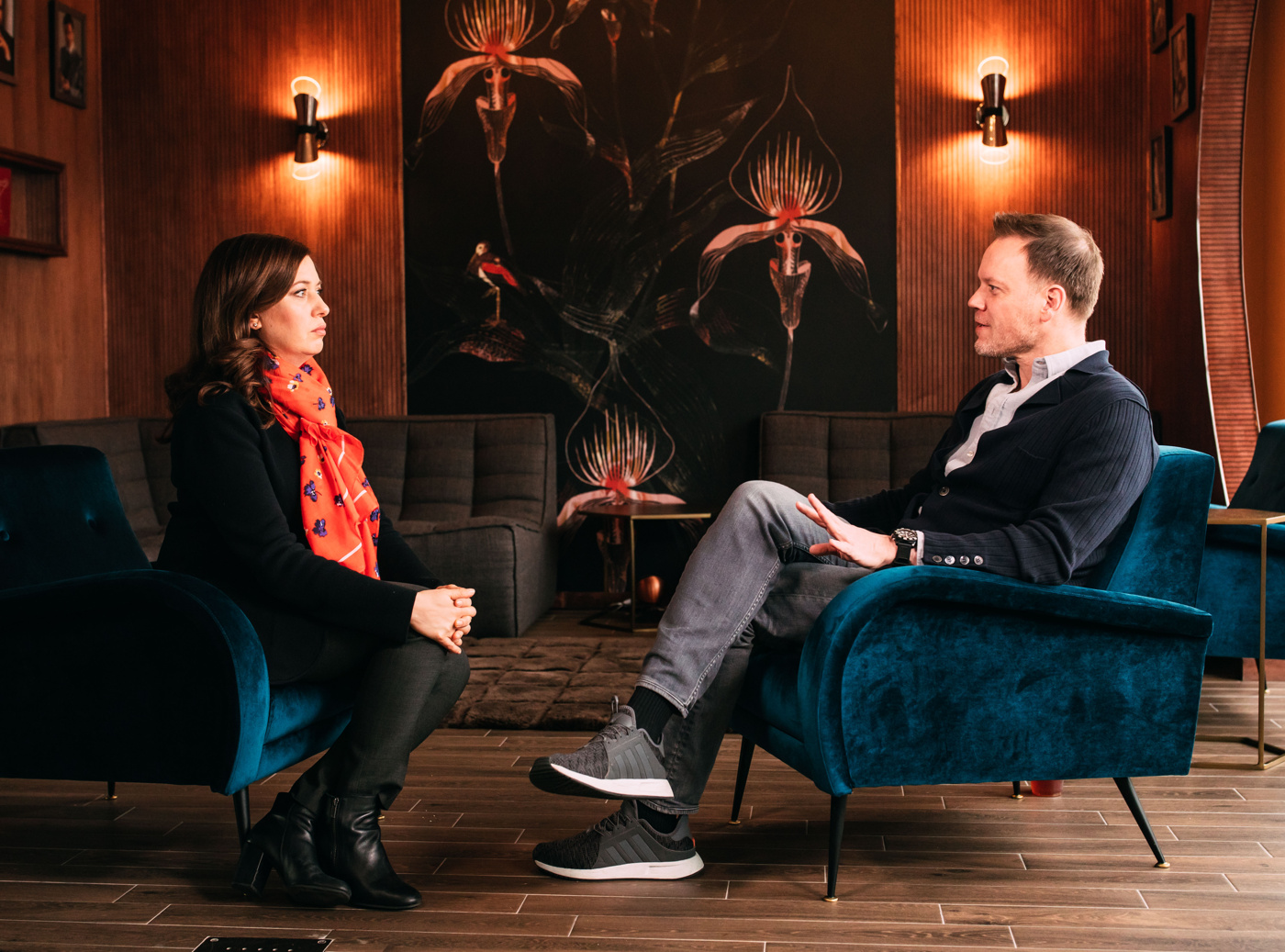
(Photo by Emilio Madrid-Kuser for Broadway.com)
As the director learned about the world of comics, his appreciation for what his collaborators were creating grew. “Comics are a great basis for this musical because they’re about myths. They’re about ideals, and they’re about archetypes,” Moore says. “Musicals are usually also about big ideas that mythical stories represent.” “We’re inundated, currently, with superheroes,” Logan says. “And when you see those movies, there’s frequently an apocalyptic violence to them, where cities can be destroyed and cosmos change in the blink of an eye. It’s a little overwhelming. Our show suggests there is something else—some other reason we’re drawn to superheroes: a basic, simple human need that doesn’t have to be about the destruction of the universe. It can be about the healing of a family. It’s going from the wide angle to the very tender close-up.”
Related Shows
Articles Trending Now
- 2025 Drama League Nominations Announced; Idina Menzel, Helen J Shen, Nicole Scherzinger, Lea Salonga and More Up for Awards
- Tony Winners Wendell Pierce and Sarah Paulson Will Announce 2025 Tony Nominations
- Redwood, Starring Idina Menzel, Will Release an Original Broadway Cast Recording in May; Debut Track Out Today
